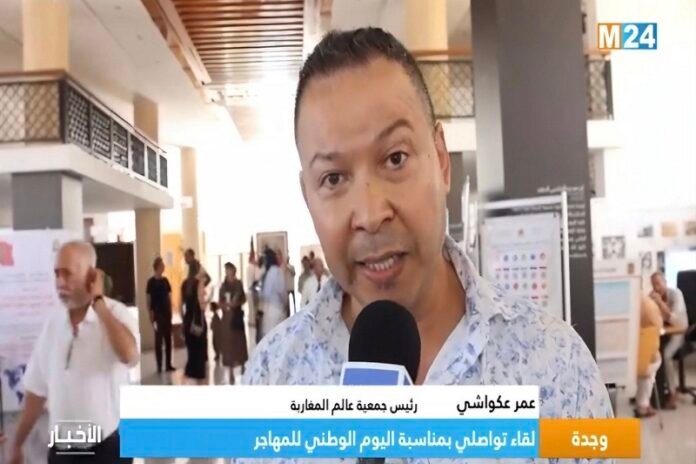Morocco marks today the National Day of the Migrant, an annual occasion that highlights the Moroccan diaspora spread across the continents and its growing role in supporting national development and advocating for national causes—especially in the face of challenges to territorial integrity.
In this context, Moroccan community activist KAOUACHI OMAR, based in France, reiterated the urgent need to address seriously the rights of Moroccans living abroad—particularly regarding political representation and institutional participation.
In a widely shared tweet, KAOUACHI raised central questions about the guarantee of political rights for the diaspora, especially the right to fair political representation and opening avenues for diaspora professionals without discrimination or patronage. He emphasized that Moroccans abroad should not be viewed solely as sources of remittances, but as a human and strategic capital that must be genuinely integrated into political life, in accordance with the Moroccan Constitution of 2011 and its Articles 16, 17, 18, and 163.
This stance aligns with royal directives that recognize the role of the diaspora. His Majesty King Mohammed VI has repeatedly affirmed that the Moroccan community abroad constitutes a human and strategic asset indispensable to the Kingdom’s development process and has insisted on the necessity of their real integration into national political life.
In this regard, the Ministry in charge of Moroccans Residing Abroad has reiterated its commitment to support the political and social rights of Moroccans living abroad. In an official statement in 2024, the Ministry declared:
“We reaffirm the Ministry’s commitment to support the rights of Moroccans abroad, notably by enhancing their political representation at national and international levels, and by providing effective mechanisms for their participation in development and decision-making, in accordance with the provisions of the 2011 Constitution.”
Despite this encouraging legal and political framework, a gap often remains between constitutional texts, royal guidance, and their practical implementation. Many members of the diaspora report feelings of marginalization or political disengagement due to administrative obstacles or opaque practices that hinder the full exercise of their political rights.
At the same time, the diaspora plays an active and vocal role in advocating for territorial integrity and national causes, through gatherings, protests, and a visible presence on international platforms. This engagement reflects a deep civic awareness and a determination to have the diaspora’s voice heard both nationally and internationally.
Therefore, the National Day of the Migrant provides an opportune moment to reassess the relationship between the Kingdom and its citizens abroad, and to urge authorities to take concrete steps to strengthen the political representation of Moroccans abroad and to open spaces for their skills—consistent with the spirit of the 2011 Constitution and the aspirations expressed by the monarchy.
Given current challenges, the crucial question remains: will these appeals and demands be translated into tangible policies and measures? Will the coming years witness a new phase of genuine and lasting political integration for Moroccans abroad?
The diaspora—with its human capital and potential—awaits an answer; the nation is called upon to provide one.




